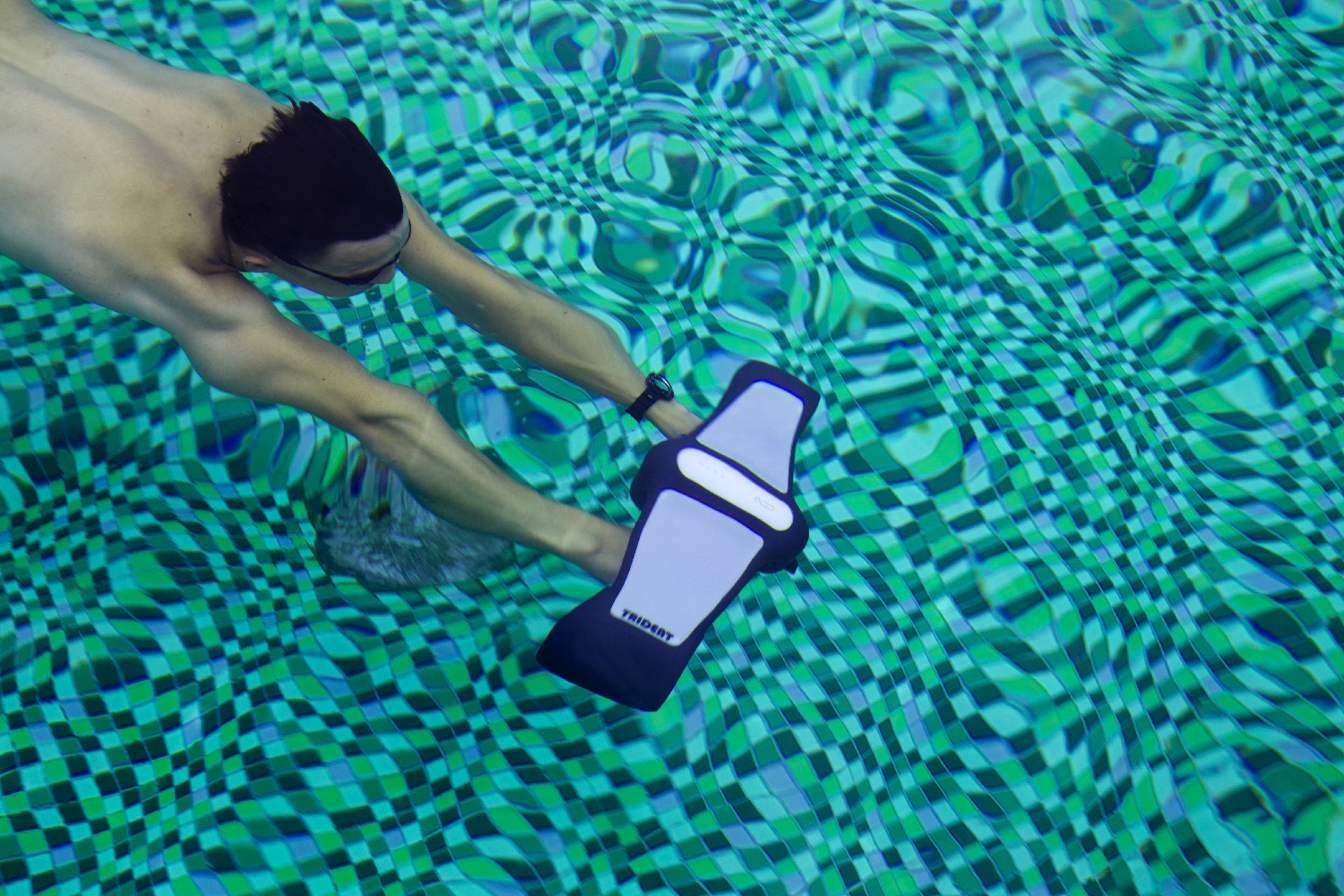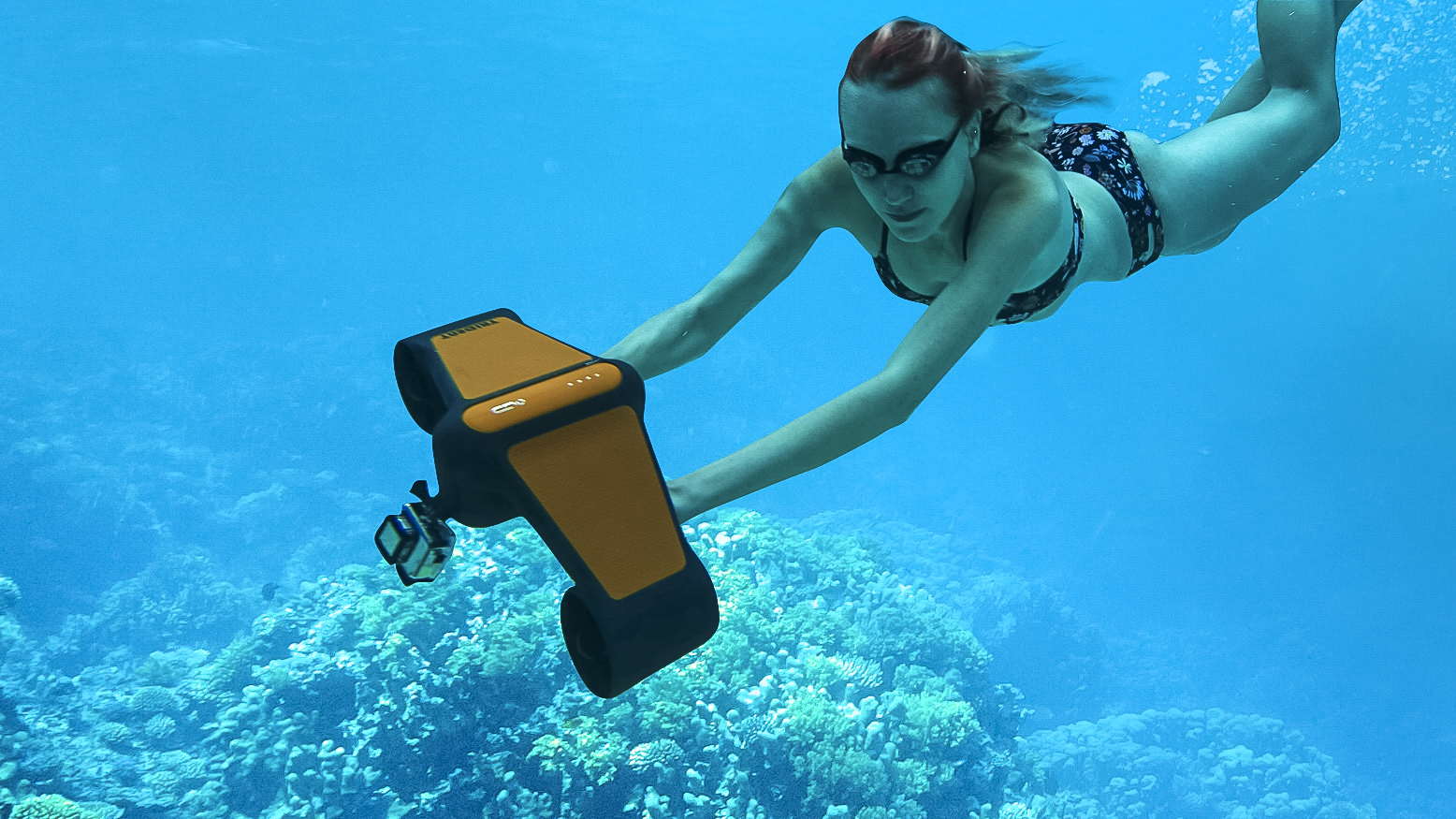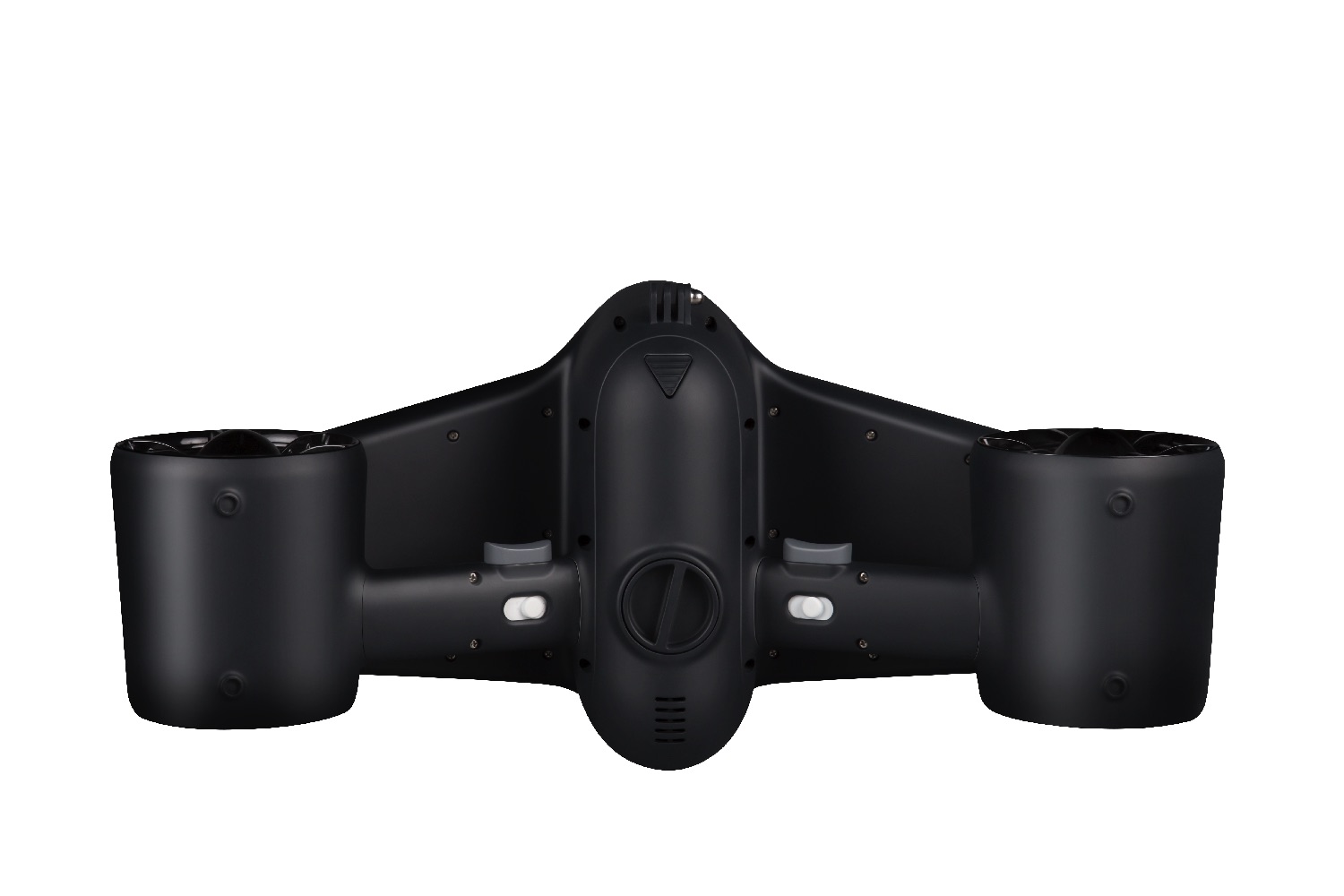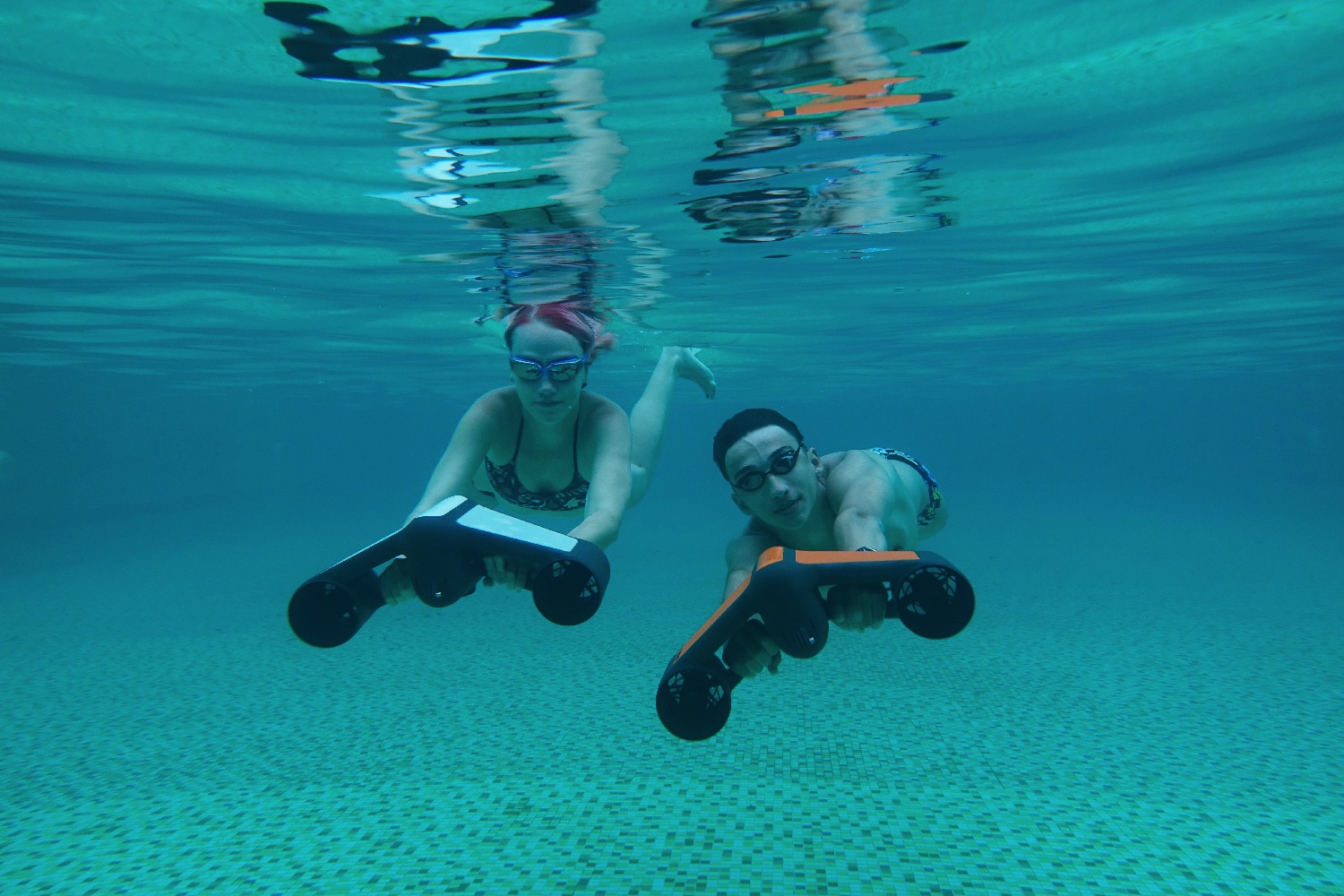It used to be that a day at the beach required a pair of swim trunks or equivalent, a picnic, and maybe a shovel and bucket if you really wanted to go the extra mile. That was before the recent wave of underwater jet packs, drones, and assorted other gadgets that turn a day lying on the sand into some kind of high-tech James Bond mission. (Remember to watch out for the suspicious villainous henchmen who are sunbathing in full clothing, and likely sport some sartorial flourish like an eye patch, hook hand, or very unhappy white cat.)
Adding to this growing genre of water-based gizmos is the so-called Trident, an “underwater scooter” which lets scuba divers, snorkelers, and secret agents propel themselves through the depths with a maximum of 26 pounds of thrust. This translates into your choice of either 2.2 or 4.3 mph. The top speed isn’t significantly faster than the average person’s swimming speed (supposedly around 3.7 mph), but it does mean that you won’t have to worry about the strenuous activity of actually swimming. Also, thanks to an hour’s charge, courtesy of Trident’s 24V/6,000-mAh lithium battery pack, you should be able to keep up the pace for a lot longer than your average swimmer.
“Trident helps people get rid of underwater restrictions,” Joey Han, overseas PR manager for manufacturers Geneinno, told Digital Trends. “Even for people who [aren’t confident about swimming] can cruise through water like a mermaid or dolphin with the help of Trident.”
While we certainly wouldn’t encourage weak swimmers to propel themselves too far into the deep using a device like this, Trident nonetheless looks like an innovative device. We also suggest that anyone hoping to use this for diving is aware of the potential pressure-related risks associated.
As ever, we offer our usual warnings about the potential perils of crowdfunding campaigns. It’s also worth noting that Geneinno has previously had one (as yet undelivered) successful crowdfunding campaign for the Titan underwater drone, which is scheduled to ship in September. Nonetheless, if you do want to get involved with the Trident campaign, head over to Indiegogo and register your interest. The campaign hasn’t officially started yet, although you can drop your email address to be sent a notification when it does begin. Prices are set to start at $299, which we’re told is 50 percent off the recommended retail price.








